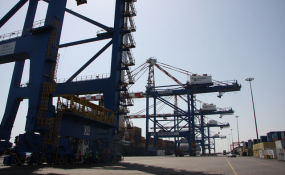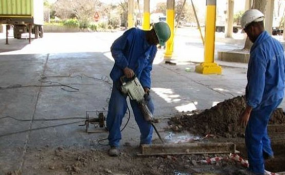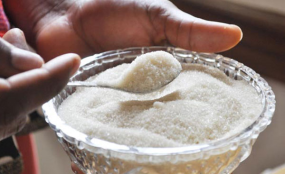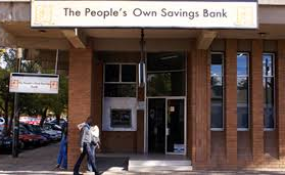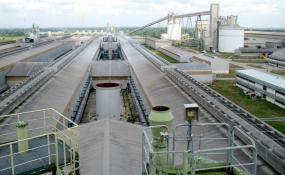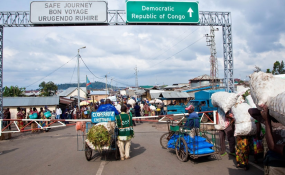Today South Africa celebrates World Maritime Day, with the theme of ‘connecting ships, ports and people’. Maritime trade is Africa’s lifeblood, and for this day to have meaning for the continent, its people and industry must benefit from the ever-increasing global maritime connectivity and growth.
African Union (AU) policies recognise the need to overcome historical marginalisation and better connect the expected growth of African ships, ports and people. These include the 2050 Africa’s Integrated Maritime Strategy (2050 AIM Strategy) and the AU’s Agenda 2063. Countries such as South Africa are also introducing a Comprehensive Maritime Transport Policy, and road maps to become well-connected maritime nations.
Present connections have left Africa largely marginalised and dependent, so the continent is missing out on controlling its vital maritime trade. African populations and economies will grow – creating new markets and greater demand for resources, services and development. Better connections are needed as there will be increased numbers of African-built, -crewed, -owned, -flagged and -operated ships, carrying both intra-African and international trade into and out of African ports. These must have positive economic impacts on the port states and surrounding communities.
People are arguably the most important part of the maritime connection
The current picture of African-owned or -operated ships at sea can seem discouraging. The 2050 AIM Strategy says African-owned shipping accounts for only about 1.2% of world shipping and about 0.9% by gross tonnage.
Few African countries operate large shipping registries. So ships carrying trade are often owned elsewhere and African countries, even when their flags are being used, cannot effectively control how they operate. Increasing the number of ships flying your flag is seen as one way of being more in control, but the risk is that some countries operate ‘flags of convenience’ or open registries. By lowering the regulatory costs associated with flying that flag, these countries offer, for a fee, the use of their flag to shipowners worldwide, providing them with affordable and easy shipping options.
While this means goods and services can be supplied cheaply as there might be fewer costly regulations, ships are often unregulated in environmentally harmful ways or without good regard to crew welfare.
Whatever the flag or nationalities of owners and crew, more ships will struggle to be accommodated in most African ports. Yet African ports are currently handling only 6% of worldwide water-borne cargo traffic and about 3% of global container traffic.
Present maritime connections have left Africa largely marginalised and dependent
Many of Africa’s biggest ports were founded or developed by colonial powers, as sites to export slaves and/or natural resources to the rest of the world – they were never intended to support present-day priorities. Many of these ports can’t get much bigger as surrounding communities and cities have limited the space to expand, and several have morphed into megacities.
Challenges facing ports are being met mostly through efforts to enhance their management and efficiency. But other more spectacular solutions are also being sought. Megaports can handle the envisioned volumes of trade needed to uplift African populations, but some are being built far from existing transport infrastructure. So the end project may be more oriented towards the efficient export of resources rather than national development plans.
The Port of Lamu in Kenya is an example of such a megaport. Kenya is developing this area to be the centre for the trade of goods from landlocked Horn of Africa countries, especially oil from South Sudan. It also wants to construct a transport corridor that goes through the country to the South Sudan-Ethiopia border. This has had a number of setbacks, such as the deterioration of security in the region, the ongoing conflict in South Sudan and historically low international oil prices affecting potential revenue and benefits.
Ports are needed to increase shipping, but not at the expense of ensuring good inland infrastructure, such as roads and railways that end at port facilities. Better inland and regional connectivity can prevent future ports from being merely nodes for exporting resources in ways that don’t benefit surrounding communities.
Maritime policies must prioritise the training and education of more African seafarers
And while ships may increase in number, and port facilities expand, the same isn’t happening for African seafarers and maritime professionals such as shipowners and entrepreneurs. People are the third, but arguably most important, part of the maritime connection.
It is ironic that maritime labour shortages are seen as driving the development of remotely piloted, crewless and autonomous ships – especially considering that few people have been enabled to pursue maritime as a livelihood.
Maritime policies must prioritise the training and education of more African seafarers. One way of enabling this is to increase the number of available training berths for cadets. This can occur if a state has more ships flying its flag, but ensuring that these training opportunities are created must be a policy priority.
Gender equality must also be considered, as women make up only a small percentage of seafarer numbers. This needs to change as building good capacity relies on recruiting from the entire population – not half of it.
World Maritime Day is more than a celebration of the maritime networks and connections that we rely on and that bind us together. It represents an opportunity to reflect on how to make these connections better and fairer for Africa.
And as that is the clear destination, it is time to set course and weigh anchor.
Timothy Walker, Researcher, Peace Operations and Peacebuilding Programme, ISS Pretoria

